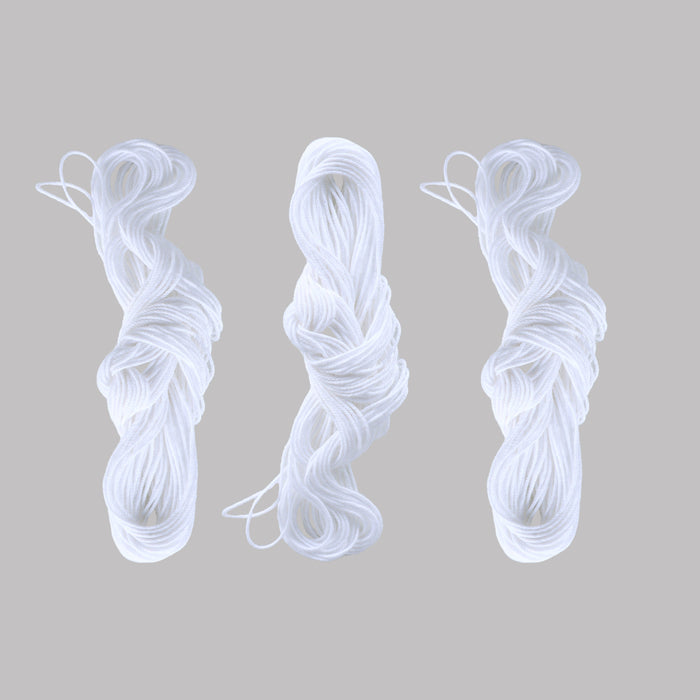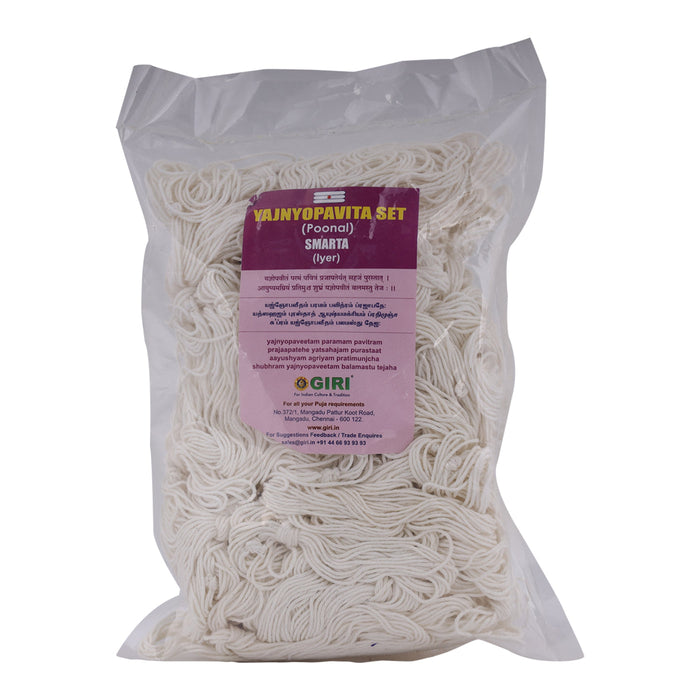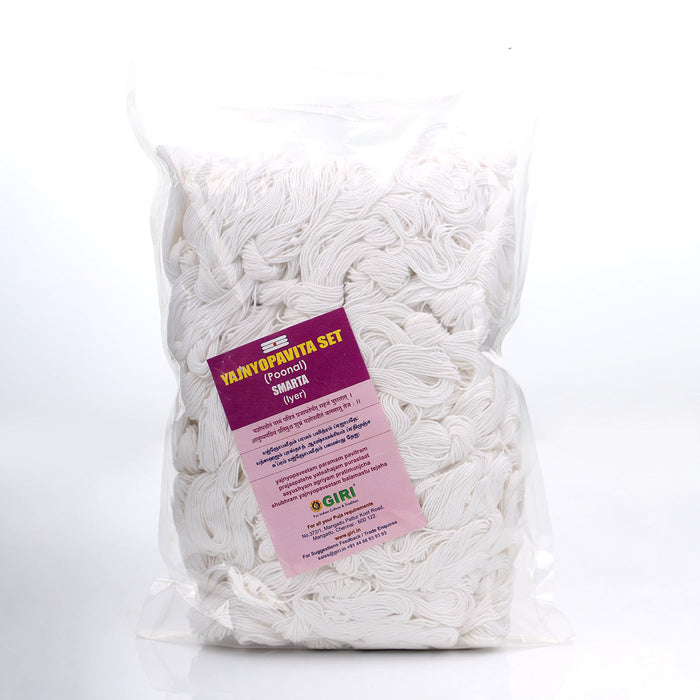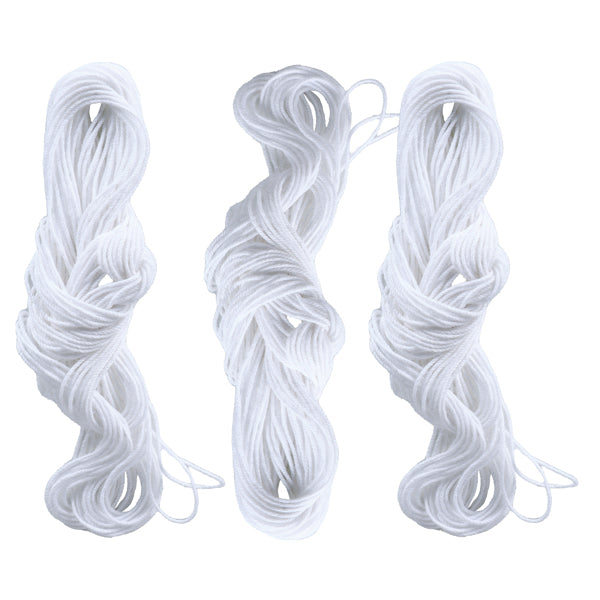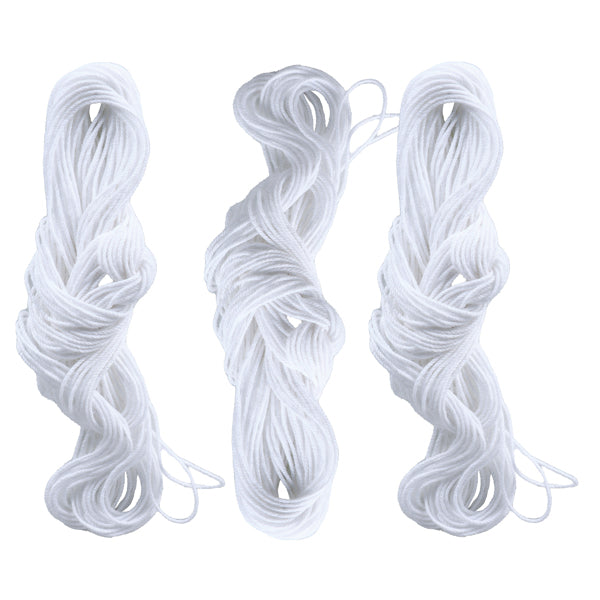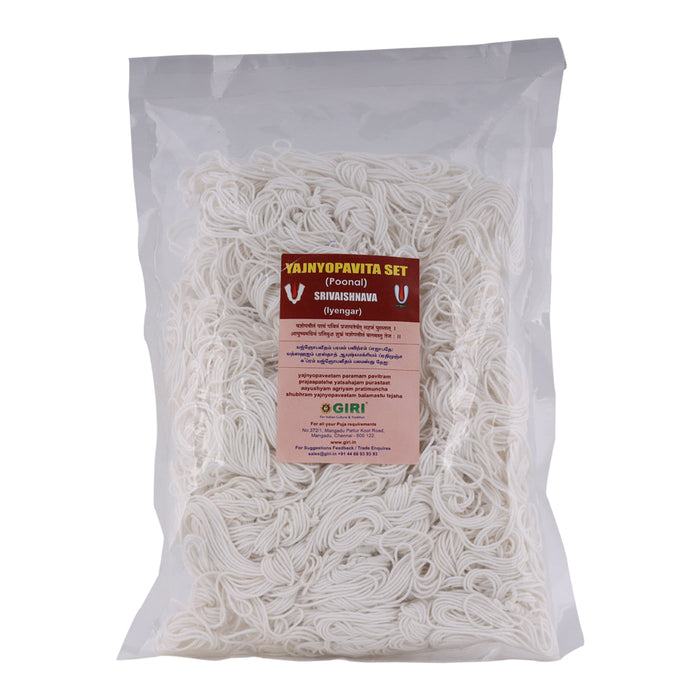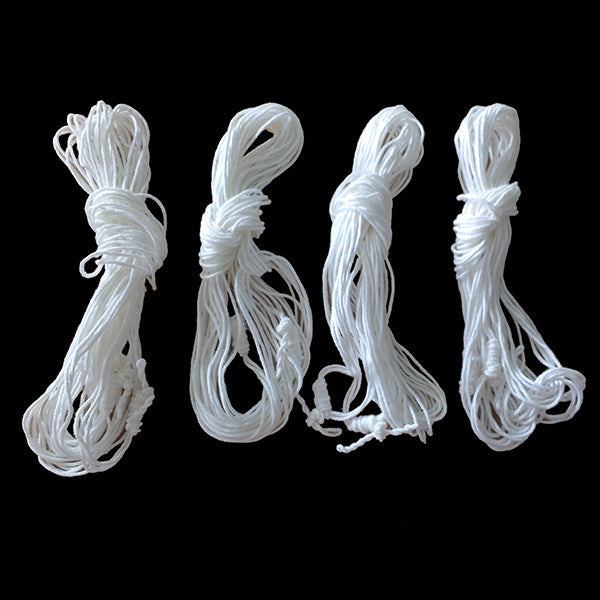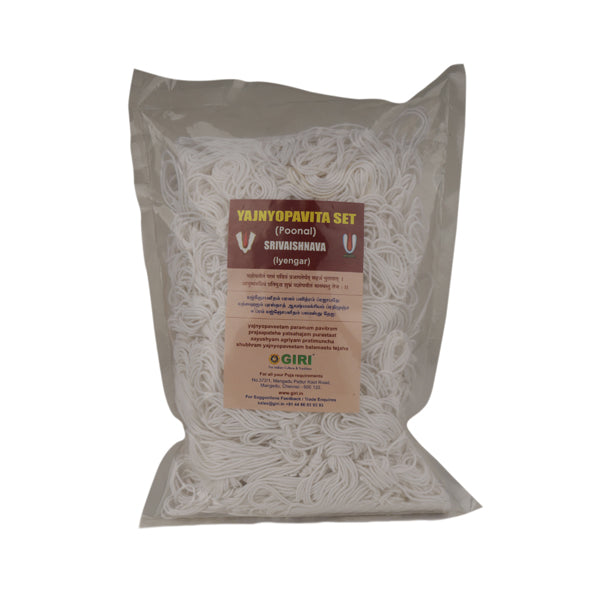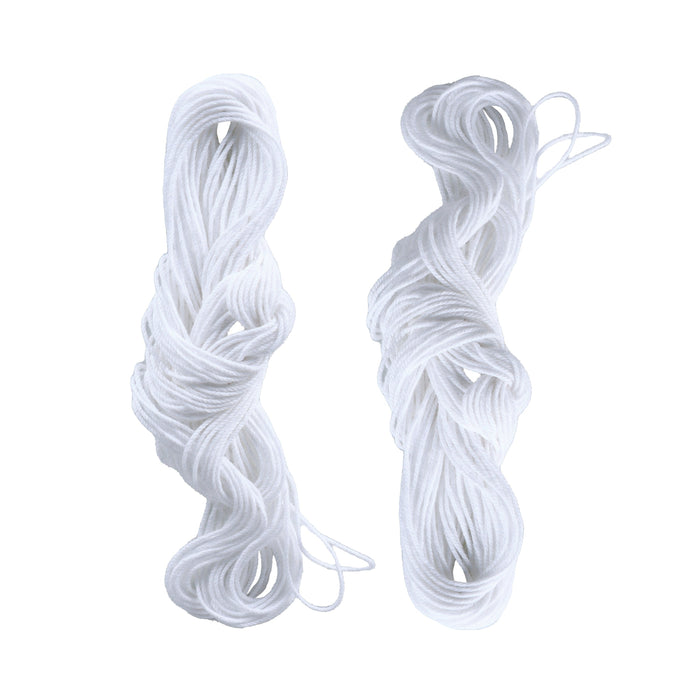
Giri Yajnopavita Set | Janau/ Sacred Thread/ Poita/ White Thread/ Poonal for Pooja
• Yajnopavita, or poonal, is a sacred thread that Brahmin men wear across their bodies.
• Traditionally, during the Upanayanam ceremony, Brahmin boys begin wearing the poonul, or sacred thread. Between the ages of 7 and 15, this rite of passage usually takes place, symbolizing their official introduction into the study of the Vedas and spiritual responsibilities. The poonul represents duty and spiritual development.
• This thread is made from pure cotton, so it is harmless to the skin. Brahmins wearing the poonal thread do poojas by chanting mantras. Some rules are followed when you wear the poonal thread to show respect for it. This set contains four pieces of sacred thread.
• Yagnopavita (poonul) is a triple-stranded sacrificial filament joined by a knot called Brahmagranthi that is worn by those initiated into the Gayathri recital.
• In Hindu tradition, the three strands of the poonul, or sacred thread, have profound symbolic connotations that include the three primary Vedas—Yajur, Sama, and Rig—are represented by the strands, which stand for the wearer's access to sacred knowledge.
• They stand for the three basic attributes of nature, or gubas: Tamas (inertia), Rajas (passion), and Sattva (purity), which represent the necessary balance in life.
The three debts (Rinas) that each person has to pay back are likewise represented by the strands: Rishi Rina (to the sages for wisdom), Pitru Rina (to the ancestors for life), and Deva Rina (to the gods for blessings).
• A poonul also represents the continuation of ancient Hindu traditions and practices. The poonul strengthens the wearer's spiritual activities and is utilized in daily rituals such as Sandhyavandanam.
• One should start wearing it the day they are initiated into the Gayathri Manthra, which generally happens through a ceremony called Upanayanam.
• Wear Yagnopavitam (poonul) one by one, reciting the relevant sankalpa and Yagnopaveetham dhaarana manthra.
• Visit Giri to drench yourself in tradition and culture.

